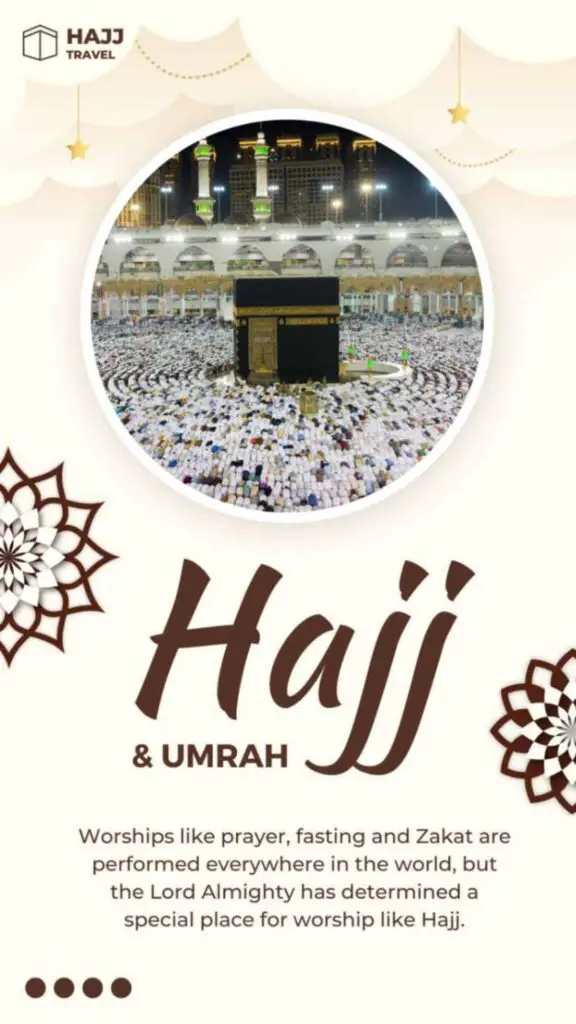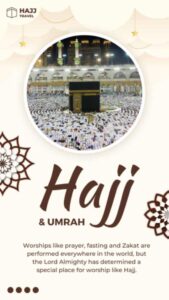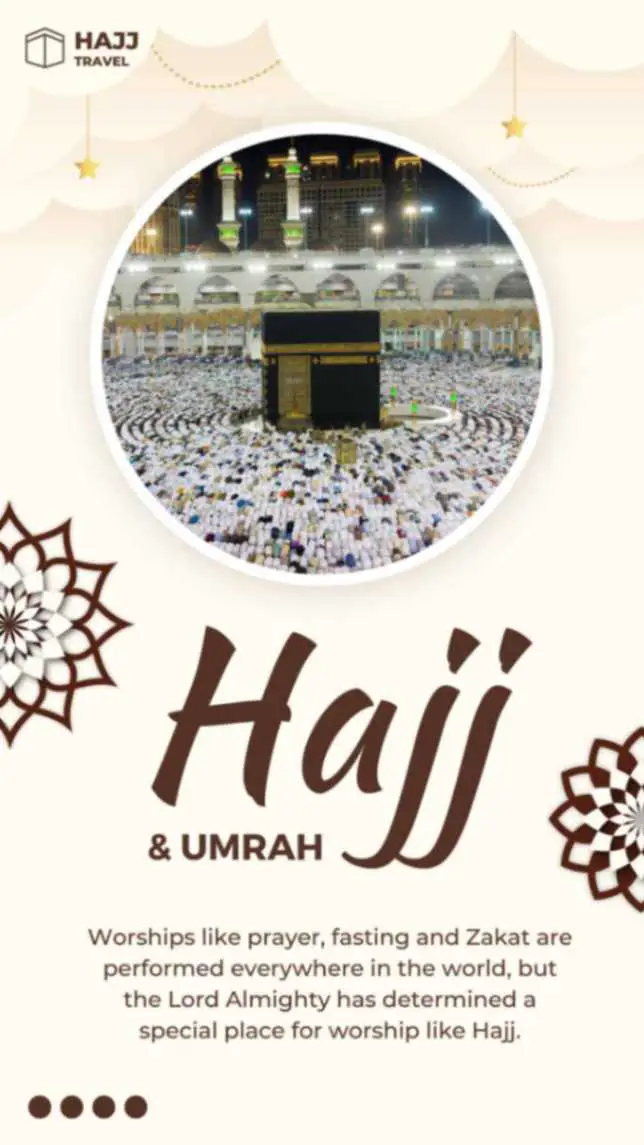Important Masail e Hajj and Obligations of Hajj.Also explained Important Duties and Cares of performing Hajj.Prohibited Matters in a state (while wearing) Ihram.

Kaaba Allah in Makkah and its suburbs, from Hazrat Adam (peace be upon him) to Prophet Muhammad (peace be upon him) of the end of time, most of the Prophets (peace be upon him) have qualities in the love of God. He commanded and called it the piety of the hearts. Worships like prayer, fasting and Zakat are performed everywhere in the world, but the Lord Almighty has determined a special place for worship like Hajj.
Obligation and importance of Hajj in the light of Quran and Hadith
Allah Almighty says: “And for the sake of Allah, Hajj to this house is obligatory on the people, whoever is able to reach it, and whoever disbelieves (in it), surely Allah is free from all the worlds” (Al-Imran: 97), in this verse, the obligation of Hajj and the condition of its obligation, i.e. ability, have been described, and it has been promised that whoever denies the obligation of Hajj is a disbeliever.
Important Conditions of Hajj
The conditions for Hajj to be wajib are set, if those conditions are met then Hajj is wajib, otherwise not:
(1) To be a Muslim, (2) To be mature, (3) To be wise, (4) To be independent, (5) To be healthy, (6) To have spending power, (7) To have peace and order on the way, (8) ) Not fearing for one’s life, (9) A woman not being in the state of Idda, (10) A woman being accompanied by a husband or Muharram.
Duties while Performing Hajj (Masail e Hajj)
Six things are obligatory in Hajj. Shaykh Rehmatullah Sindhi writes:
(1) Ihram, (2) Waqf of Arafa, (3) making four rounds of Tawaf, (4) having the intention of Tawaf, (5) maintaining order between duties (wearing Ihram first, then Waqf and then doing Tawaf), (6) Performing every fard at its proper time, (7) having the house i.e. “Waqf” at the head of Arafat and performing Tawaf in Masjid Haram.

Obligations of Hajj
Shaykh Rehmatullah Sindhi wrote the obligatory things Hajj as follows:
(1) Putting on Ihram before the Miqat, even if you put on Ihram before the Miqat, it is also permissible, (2) Running between Safa and Marwah, (3) Sa’i. Starting from Safa,
(4) If there is no excuse, to try on foot, (5) If he performs waqf during the day, he should do waqf until the sun sets, and if he does waqf at night, then it is not wajib to do waqf to any particular extent. But he neglected the duty of standing till sunset during the day.
(6) Staying for some part of the night in Waqf (7) Following the Imam on his way back from Arafat, that is, he should not leave until the Imam leaves. If, due to the crowd or some necessity, he stayed after the imam left and did not go with him whenever it is permissible, (8) Staying in Muzdalifah,
(9) Maghrib and Isha prayers, praying Isha in Muzdalifah, (10) The three Jamras. But throwing pebbles on the tenth, eleventh, and twelfth means rummy on the tenth only on Jamra al-Aqaba and on the eleventh and twelfth on all three.
(11) Rumi of Jumrah Uqaba to be done before the throat on the first day, (12) Every day Rumi to be done on the same day, (13) Head shaved or hair cut, (14) Days of Nahr and (15) Being in Haram Sharif even though Mina. Don’t be me. (16) Sacrifice to the one who recites the Qur’an and Tamattu, (17) This sacrifice should be performed in the Haram and during the days of Nahr,
(18) Most of the Tawaf-e-Afizah should be performed during the days of Nahr (the name of the Tawaf performed after returning from Arafat). Tawaf-e-Ifazah is also called Tawaf-e-Ziyarat, (19) Tawaf to be performed from outside Hatim, (20) To perform Tawaf from the right side, i.e. the Holy Kaaba should be on the left side of the one performing Tawaf.
(21) If there is no excuse, performing circumambulation while walking, (22) being free from impurity while performing circumambulation, i.e. not performing ablution on the side, (23) concealing the seventies while performing the circumambulation, not opening the seventies in prayer. (24) Praying two rak’ahs after Tawaf, but if you don’t pray, then it is not Wajib.
(25) Throwing pebbles and slaughtering and shaving the head and order in Tawaf means throwing pebbles first and then performing a non-individual sacrifice. Then shave your head and then circumambulate.
(26) Tawaf al-Sadr i.e. Tawaf of leave for those who live outside the Miqat, if the Hajj pilgrim is menstruating or in nifas and the caravan leaves before Taharat, then there is no Tawaf of leave on her,
(27) Waqf of Arafah. Not having intercourse until the head is shaved, (28) Avoiding the prohibitions of Ihram (Labab al-Manasik by Sundi, pp. 68-73).
The Day of Arafah In Hajj
Prohibited matters in the state of Ihram
while writing important Masail e Hajj we consider it very important to also write on respect of Ihram these are some of the things prohibited when you are in the state of Ihram:
(1) hunting, helping a hunter, (2) cutting trees, grass, plants, etc. within the boundaries of Haram or killing flies, mosquitoes, lice, etc., (3) plucking any hair from the body or clipping nails, (4) sewn Wearing clothes like shirt, shalwar or hat etc.,
(5) Using perfume, like bathing with perfumed soap or applying perfumed perfume or using perfume in food and drink.
(6) Covering the head and face for a man and covering the face with a cloth for a woman (of course, it is necessary for a woman to cover her head), (7) Establishing a marital relationship between husband and wife.
Farewell circumambulation
The last Tawaf at the time of departure from Makkah is called “Farewell Tawaf”. This circumambulation is obligatory for pilgrims who live outside the boundaries of the miqat. There is no Ihram in Tawaf-e-Wada, no ablution, no Ramal and no Sa’i of Safa and Marwah, Tawaf is always ablution. This is the last circumambulation, so at the time of departure from the house of Allah, pray for everyone with great humility and reluctance, requesting(praying) to be called again.
Table of Contents
More Recommended Posts

Ayat ul Kursi-Surah Baqarah Translation
Ayat ul kursi which is in Parah 3 of Surah Baqarah With Arabic Verse and Easy and simple English Language Translation. Ayat ul Kursi is

Important Masail E Hajj In Light of Islam
Important Masail e Hajj and Obligations of Hajj.Also explained Important Duties and Cares of performing Hajj.Prohibited Matters in a state (while wearing) Ihram. Kaaba Allah

Eid Mubarak Dpz Eid ul Adha Dpz 2024
Eid ul Adha Best Eid Mubarak Dpz 2024.Beautiful Dpz suitable for sharing on your social media Platforms as a status of your whatsapp , instagram



Wow So Special knowledge in this article